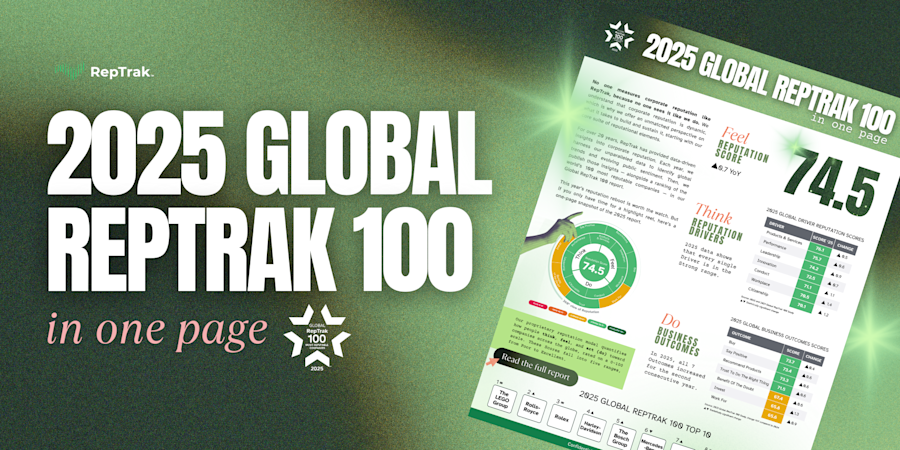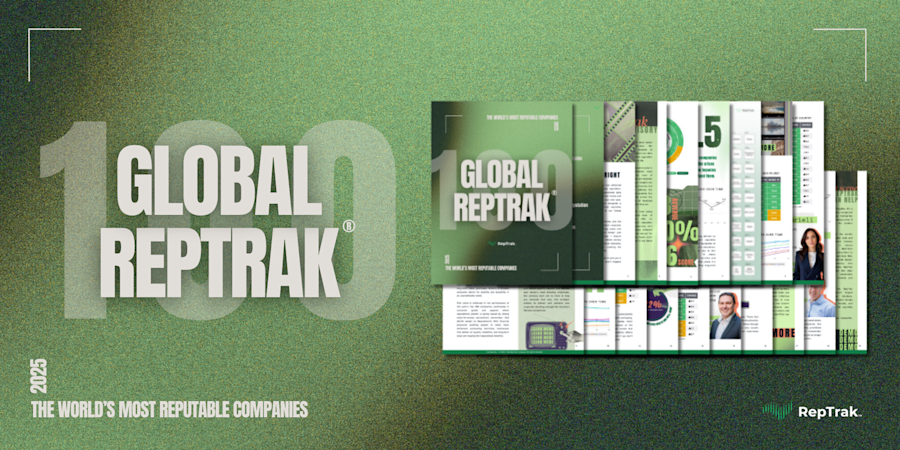Build Back Your Reputation Better with ESG in 2020
Corporate Responsibility/ESG10 Jun, 2020
At the start of this year, responsible investing, with a focus on Environmental, Social, and Governance (ESG) criteria, was already an important concern for companies around the world. But since then, ESG has gone well beyond the investment community and into the consciousness of the mainstream public.
To be clear, ESG is not merely “corporate responsibility” with a new name. Corporate responsibility is a company’s general efforts to do the right thing and have a positive influence, to do right by its employees, the environment, and to be ethical and transparent. But ESG measures activities around environment, governance, and social activities, providing a more precise assessment of the company’s actions that are included in its financial evaluation.
Investors have long used ESG to evaluate companies’ sustainability, social consciousness, and ethical standards, particularly as a means to gauge and mitigate risk. Today, such evaluations are commonplace; Moody’s, Standard & Poor’s, and Fitch all consider ESG when they establish their bond ratings.
The coronavirus pandemic in the last six months led to ESG taking hold beyond investors. As a result, today, it’s a priority for the wider universe of stakeholders, as well. Whether they realize it or not, consumers and employees use their perception of companies’ effect on society to decide where they should shop and work.
E to S to G in just six months
Three recent events highlight how ESG concerns have touched all levels of society.
1. 2019 was the year of Environmental concerns, highlighted by Swedish climate activist Greta Thunberg’s September speech to the United Nations General Assembly in New York, and culminating in her being named Time’s “Person of the Year” in December. The message was clear: this rising generation will hold companies to account for their environmental impact.
2. Less than a month after the Time announcement, the first cluster of COVID-19 cases emerged in Wuhan, China, in January and quickly spread throughout the world. Soon, companies found themselves judged by how they responded to Social concerns, from taking care of their employees to protecting their customers and communities.
3. As much of the world was beginning to reopen their societies, the death of George Floyd while in the custody of Minneapolis police in late May prompted global outrage and widespread protest. Despite the global pandemic and troubling recession, a population demanding fairness, ethics, and accountability made it evident that they will be unforgiving of lax Governance—especially racial discrimination—in both the public and private sectors.
E, S, and G—all in just six months.
Build Back Better: It’s more than a slogan
As companies emerge from the present health and economic crisis, incorporating ESG factors into their business plans will be crucial. The phrase “Build Back Better” is more than just a slogan: it’s a reflection of a company’s values, from its core purpose to its public communications and visibility.
Our data since the start of the COVID-19 pandemic has consistently revealed that the public judges companies by how well they protect their employees, followed by how they assist their communities.
The stakes could not be higher. Our recent survey in the United Kingdom found that 56% of the general public would stop using a company’s products or services if they were disappointed in the company’s response to COVID-19. Furthermore, 25% of them have already convinced another person to stop patronizing a company for that reason.
Yet the flip side to this risk is opportunity. When individuals are aware that a company has responded well to COVID-19, 67% will start buying products or services from that company, and 68% will actively recommend the company.
Consider how all the ESG factors act in concert to affect your reputation: a company cannot be seen as ethical, for example, if it is damaging the environment. Similarly, companies that neglect Diversity & Inclusion do so at their own peril; one racial or gender discrimination incident can crush a company’s reputation.
ESG: From informal to standardized reporting
Historically, ESG evaluation consisted largely of voluntary self-reporting, but increasingly, firms are adopting new industry standards. Verizon’s most recent ESG report for 2019, for example, evaluated the company’s efforts in the context of the United Nations Sustainable Development Goals (SDGs), a set of 17 interconnected goals related to the environment, economic inequality, and social justice.
Nor should companies let the COVID-19 pandemic delay their ESG plans. France’s Danone SA announced last month that it was actively seeking B Corp Certification, a formal validation of the company’s social and environmental efforts offered by the nonprofit B Lab.
Those companies that think they can fly under the radar may find themselves outfoxed by regulators: The European Union’s new rules on sustainability-related disclosures in the financial services sector go into effect beginning in March 2021.
Measuring ESG and reputation
As part of our unique Reputation Score evaluation, RepTrak draws upon a vast trove of information to quantify how companies’ Environmental, Social, and Governance efforts and communications affect public perception. RepTrak users then can use the ESG module to drill down into the nine underlying factors that make up the ESG Score.
By viewing ESG in the context of the broader Reputation Score, companies can discover how their ESG efforts affect their overall reputation among stakeholders, as well as how they impact business KPIs. Specifically, according to our U.S. Continuous RepTrak study (March 2019–April 2020), there is a strong statistical correlation between a company’s ESG Score and whether consumers will trust that company to do the right thing.
Changing expectations
Now is the time to act. Companies that fail to adapt to this changing reality risk damaging their reputations at precisely the time when they can least afford it. By making ESG concerns an integral part of their ongoing 2020 business plans, companies can emerge from the present crisis with an enhanced reputation in keeping with the public’s changing expectations.
Learn what your ESG Score is: Click here to request a demo of the RepTrak Platform.





